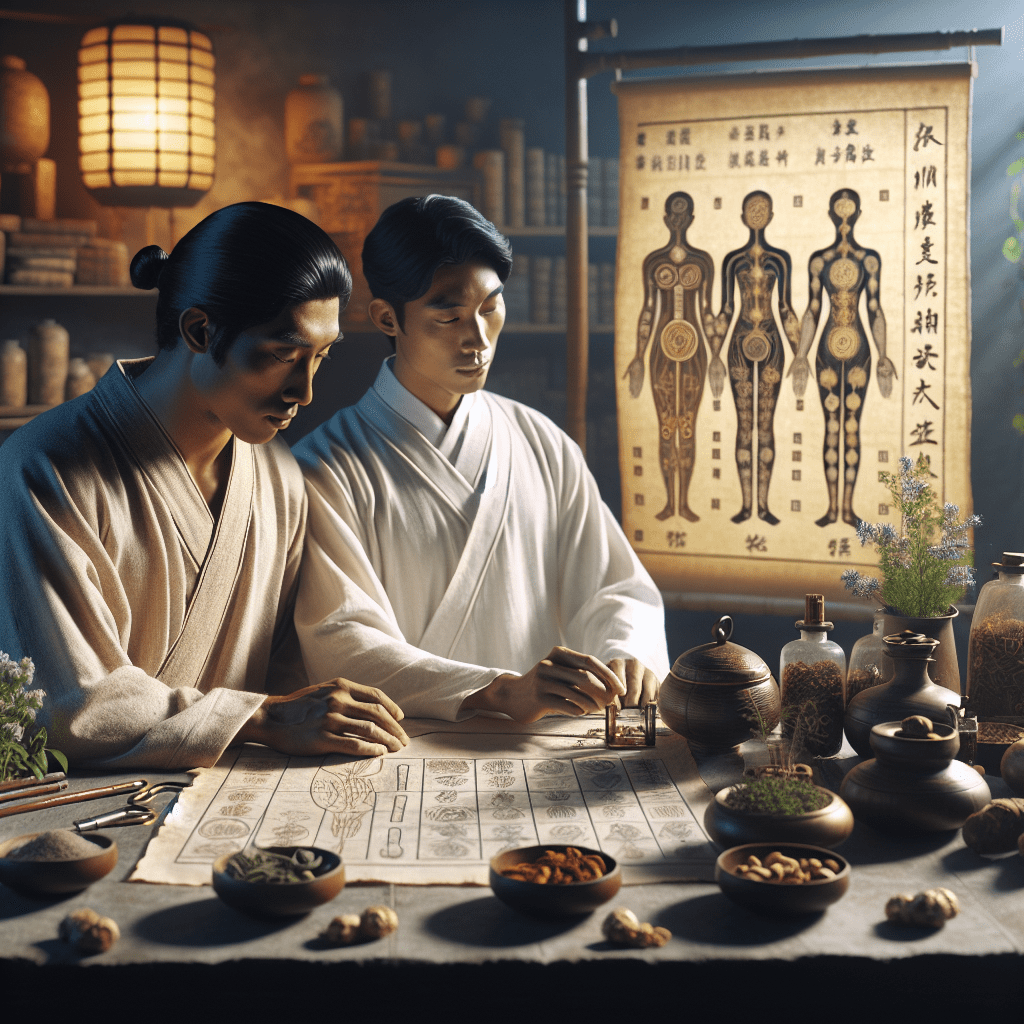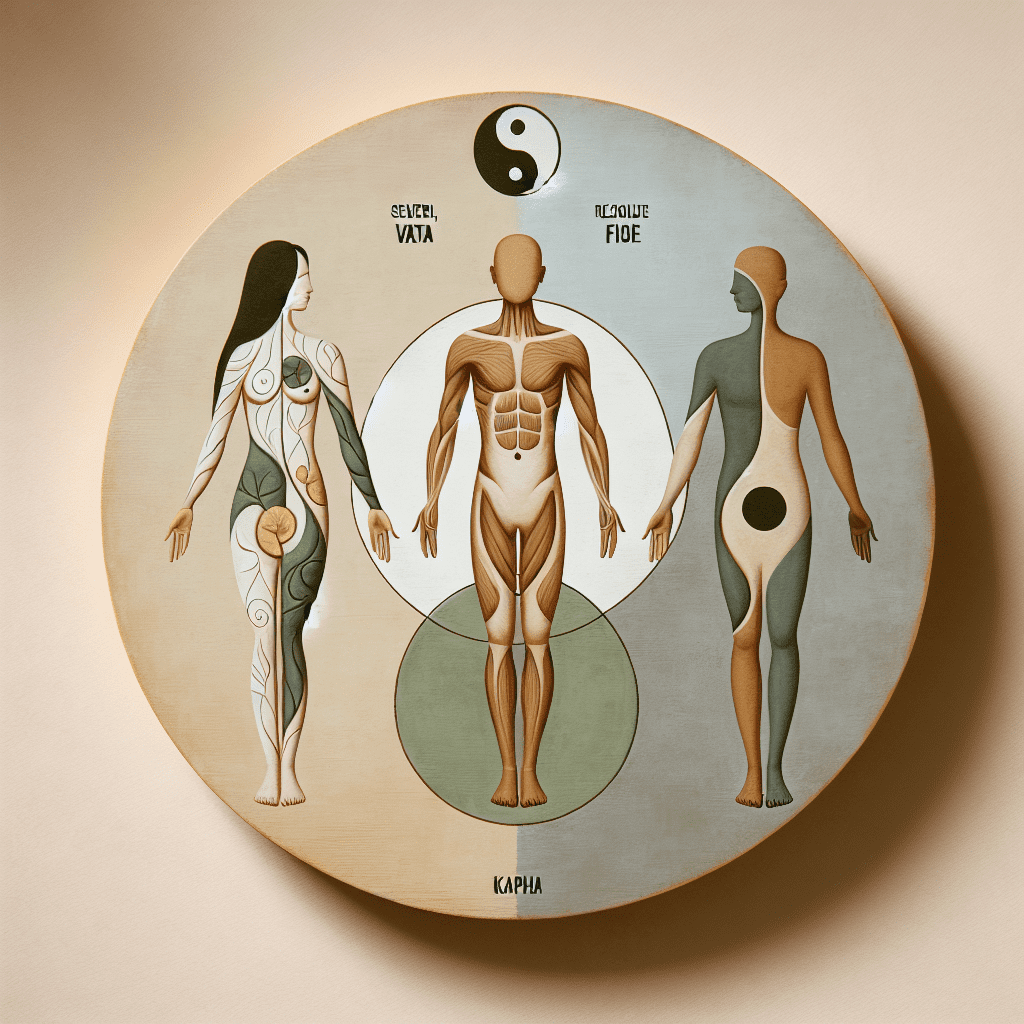In a world of one-size-fits-all health advice, there’s something deeply appealing about discovering your unique body type according to wisdom that has stood the test of time. Traditional Chinese Medicine (TCM), with its 2,000-year history, offers exactly this kind of personalized approach through its constitutional system medical framework. Unlike modern medicine that often treats symptoms uniformly, TCM recognizes that each person has a distinct constitutional makeup that influences everything from digestion to emotional tendencies.
This ancient approach to health isn’t just a relic of the past—it’s experiencing a renaissance among health-conscious individuals seeking holistic wellness solutions. The constitutional system medical approach of TCM provides insights into why some people thrive on certain foods that others find problematic, or why some of us are naturally energetic in the morning while others come alive at night.
Understanding TCM Constitutional Types: The Foundation of Eastern Medicine
Traditional Chinese Medicine views health through the lens of balance—not just within the body, but between the body and its environment. The constitutional system medical theory suggests that we are born with certain tendencies that shape our physical characteristics, psychological traits, and susceptibility to particular health issues.
At its most basic level, TCM categorizes body types into three primary classifications:
Neutral (Balanced) Constitution: Considered the ideal state, people with a balanced constitution typically have good energy, sleep well, maintain steady body weight, and demonstrate emotional stability. They’re less prone to illness and recover quickly when sick. In the constitutional system medical framework, this represents harmony of yin and yang forces.
Yang Constitution: Yang types run “hot” in the TCM understanding. They often have ruddy complexions, feel warm to the touch, prefer cold drinks, and may be prone to inflammatory conditions. Their personalities tend toward the outgoing and assertive. Constitutional system medical practitioners note that yang types often have strong metabolisms but may burn out if they don’t balance their energy.
Yin Constitution: Yin types tend to run “cold” with paler complexions, cold hands and feet, and a preference for warm environments. They may have slower metabolisms, be more introspective, and require more rest. The constitutional system medical approach recognizes that yin types need to guard against coldness and deficiency conditions.
However, these three classifications are just the beginning. According to the China Association for Traditional Chinese Medicine, there are actually nine distinct constitutional types that offer a more nuanced understanding of individual health patterns:
- Balanced (Neutral) Type
- Qi Deficiency Type
- Yang Deficiency Type
- Yin Deficiency Type
- Phlegm-Dampness Type
- Damp-Heat Type
- Blood Stasis Type
- Qi Stagnation Type
- Special Constitution Type
Each of these types has distinct characteristics that influence health tendencies, disease susceptibility, and optimal lifestyle choices. Understanding your constitutional type is the first step toward tailoring health practices to your body’s unique needs—a cornerstone of the constitutional system medical approach.
Discover Your TCM Body Type: Take the Quiz
Are you curious about which TCM body type you might be? Take our simple quiz below to get an initial understanding of your constitutional tendencies. Remember, this is a starting point—a comprehensive constitutional system medical assessment would typically be performed by a trained TCM practitioner who considers your pulse, tongue appearance, and detailed health history.
TCM Constitutional System Medical Quiz
For each question, choose the answer that best describes you most of the time, not just currently.
1. How would you describe your energy levels throughout the day?
a) Consistent and strong
b) I tire easily and need frequent rest
c) Strong but I burn out by evening
d) Irregular—sometimes high, sometimes low
2. How do you typically feel in cold weather?
a) Comfortable
b) Very uncomfortable—I always feel cold
c) I prefer it to hot weather
d) Indifferent
3. How would you describe your digestion?
a) Strong and regular
b) Weak with occasional bloating
c) Quick, sometimes with heartburn
d) Sluggish and prone to feeling heavy
4. Which best describes your emotional tendencies?
a) Generally balanced and adaptable
b) Anxious or worried
c) Irritable or impatient
d) Melancholic or overthinking
5. How do you respond to stress?
a) I handle it well and recover quickly
b) I become exhausted and depleted
c) I get angry or frustrated easily
d) I become tense and have trouble sleeping
6. What is your typical body weight tendency?
a) I maintain a healthy weight easily
b) I tend to be underweight
c) I fluctuate but generally stay fit
d) I gain weight easily, especially around the middle
7. How would you describe your sleep?
a) Sound and refreshing
b) Light and easily disturbed
c) Difficulty falling asleep due to an active mind
d) Heavy but not refreshing
8. What is your preference for food and drink?
a) Moderate amounts of all types
b) Warm foods and drinks
c) Cold foods and drinks
d) Rich, heavy foods
9. How would others describe your speaking style?
a) Clear and measured
b) Quiet or soft
c) Loud and passionate
d) Talkative but rambling
10. How do you handle physical activity?
a) Enjoy moderate exercise with good endurance
b) Easily fatigued by exercise
c) Enjoy intense exercise but may overdo it
d) Prefer gentle movement and dislike sweating
Scoring Guide:
Count how many of each letter you selected. Your predominant letter indicates your likely constitutional tendency:
- Mostly A’s: You likely have a Balanced Constitution
- Mostly B’s: You may have a Qi or Yang Deficiency Constitution
- Mostly C’s: You may have a Yin Deficiency or Heat Constitution
- Mostly D’s: You may have a Dampness or Qi Stagnation Constitution
While this quiz provides a preliminary insight into your constitutional type, a comprehensive analysis would account for more nuanced combinations and patterns. For a more advanced assessment, consider exploring tools like the EASTCHI AI platform, which integrates traditional constitutional system medical knowledge with artificial intelligence to provide deeper insights into your body’s unique patterns.
EASTCHI AI analyzes multiple factors beyond simple questionnaires, including seasonal influences, Five Element Theory correspondences, and detailed constitutional system medical patterns to generate personalized health recommendations.
Tailoring Health Practices to Your Constitutional Type
Understanding your TCM body type is more than an interesting exercise—it’s a practical tool for customizing your health practices. The constitutional system medical approach offers different recommendations based on your unique type:
For Balanced Types:
The goal is maintenance rather than correction. Focus on regular, moderate exercise, a diverse diet with foods from all five flavors (sweet, sour, bitter, pungent, and salty), and balanced work and rest cycles. Seasonal adjustments are important—even balanced types need to adapt to environmental changes.
For Qi Deficiency Types:
Constitutional system medical principles suggest focusing on energy conservation and nourishment. Incorporate easily digestible, nutrient-dense foods like sweet potatoes, rice, chicken, and dates. Gentle exercises like tai chi or walking are preferable to intense workouts. Regular, early bedtimes help prevent further energy depletion.
For Yang Deficiency Types:
Warming foods and practices are essential. The constitutional system medical approach recommends incorporating ginger, cinnamon, lamb, and other warming foods while avoiding raw, cold foods. Keep your lower back and abdomen warm, especially in winter. Moderate exercise that generates warmth without exhaustion is ideal.
For Yin Deficiency Types:
Cooling, moistening foods and practices help balance these constitutions. From a constitutional system medical perspective, foods like tofu, eggs, fish, pears, and plenty of water are beneficial. Avoid excessive heat, whether from spicy foods, hot environments, or intense exercise. Adequate rest and stress management are crucial.
For Phlegm-Dampness Types:
The constitutional system medical approach emphasizes reducing dampness through diet and lifestyle. Limit dairy, sweets, and greasy foods while incorporating drying foods like job’s tears barley, radishes, and green tea. Regular, moderate exercise is essential for these types, as is avoiding damp environments.
For Damp-Heat Types:
Constitutional system medical principles suggest focusing on cooling and draining dampness. Bitter vegetables, mung beans, cucumber, and watermelon can help clear heat, while limiting alcohol, fried foods, and spicy dishes prevents further heat accumulation. Staying hydrated and maintaining healthy elimination is crucial.
For Blood Stasis Types:
The focus is on improving circulation. Constitutional system medical recommendations include regular movement, massage, and circulation-promoting foods like turmeric, saffron, red dates, and goji berries. Avoiding prolonged sitting and cold exposure helps prevent further stagnation.
For Qi Stagnation Types:
Stress management is paramount. The constitutional system medical approach emphasizes regular exercise, deep breathing practices, and emotional expression. Slightly pungent foods like onions, garlic, and moderate amounts of citrus can help move stagnant qi.
These recommendations illustrate how the constitutional system medical framework provides personalized guidance rather than generic health advice. By aligning your health practices with your constitutional type, you’re working with your body’s natural tendencies rather than against them.
Ancient Wisdom Meets Modern Technology: The Future of Personalized Health
The beauty of the constitutional system medical approach lies in its timelessness—principles developed millennia ago still offer relevant insights today. Yet when combined with modern technology, these ancient insights become even more powerful and accessible.
This integration of ancient wisdom and cutting-edge technology is exactly what HerbalsZen’s philosophy embodies. By leveraging advanced AI technology through its EASTCHI AI platform, HerbalsZen makes the nuanced constitutional system medical analysis available to contemporary health-conscious individuals.
The constitutional system medical framework reminds us that true health isn’t about following generic guidelines but about understanding and honoring our unique body constitution. Whether you’re a fiery Yang type needing to cool down, a Yin type requiring nourishment, or any combination of constitutional patterns, personalized approaches yield better results than one-size-fits-all solutions.
As you continue your wellness journey, consider how your constitutional type might influence your health choices. Which foods make you feel energized rather than depleted? What exercise styles leave you refreshed instead of exhausted? How do seasonal changes affect your wellbeing? These questions, fundamental to the constitutional system medical approach, lead to more intuitive and effective health practices.
The ancient physicians who developed the constitutional system medical theory understood something that modern medicine is only beginning to embrace: true healthcare must be personalized. By exploring your TCM body type, you’re not just looking to the past—you’re participating in the future of health, where individual constitution matters and personalization is paramount.
Take the first step by reflecting on your quiz results, then consider exploring more comprehensive constitutional analysis tools like EASTCHI AI to deepen your understanding of your unique constitutional makeup. Your body has been trying to tell you what it needs—the constitutional system medical approach simply helps you understand its language.



